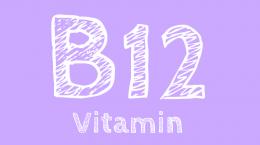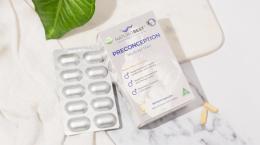The Importance of Hydration and Electrolytes for Optimal Health

Water is essential for life, and proper hydration is vital for maintaining overall health and well-being. While drinking plain water is important, electrolytes play a crucial role in ensuring our bodies function optimally.
This article will explore the significance of hydration and the role electrolytes play in maintaining fluid balance, supporting bodily functions, and promoting overall health.
Disclaimer:Always speak with your doctor before taking any action regarding your health. Supplements have a wide range of potential effects and it's important to ensure that they are right for you. This article is not intended to diagnose, treat, or cure any disease. |
The Importance of Hydration:
Water is the primary component of our bodies, comprising about 60% of our total body weight. It plays a crucial role in various physiological processes, including temperature regulation, digestion, nutrient absorption, and waste elimination. Maintaining proper hydration levels is vital for these processes to occur efficiently.
Water loss can occur through various means, including sweating, urination, and breathing. When we don't adequately replenish this lost water, dehydration can occur, leading to a range of health issues. Mild dehydration can cause fatigue, headaches, and impaired cognitive function, while severe dehydration can result in dizziness, confusion, and even organ failure. Therefore, staying hydrated is essential for optimal health and performance.
The Role of Electrolytes:
Electrolytes are minerals that carry an electric charge when dissolved in water. The most important electrolytes for our bodies include sodium, potassium, calcium, magnesium, chloride, and phosphate. These minerals play critical roles in maintaining fluid balance, conducting nerve impulses, contracting muscles, and regulating pH levels.
Electrolytes and Fluid Balance:
Electrolytes help maintain proper fluid balance within our cells and in the extracellular space. Sodium and potassium are particularly important in this regard. Sodium, the main electrolyte in extracellular fluid, helps retain water in the body and prevents excessive fluid loss. Potassium, found primarily inside cells, helps regulate fluid balance and supports proper muscle and nerve function.
Electrolytes and Nerve Function:
Electrolytes are essential for transmitting nerve impulses throughout our bodies. Sodium, potassium, and calcium ions play a vital role in this process. These ions help generate electrical impulses, allowing communication between nerves and enabling muscle contractions. Without proper electrolyte balance, nerve impulses can become disrupted, leading to muscle weakness, spasms, and cramps.
Electrolytes and pH Regulation:
Maintaining the body's pH balance is crucial for normal cellular function. Electrolytes such as bicarbonate, phosphate, and proteins help regulate the body's pH levels. They act as buffers, preventing excessive acidity or alkalinity that could disrupt cellular activity and enzyme function.
Electrolyte Sources:
While plain water can help replenish fluid levels, it does not provide an adequate supply of electrolytes. Consuming electrolyte-rich foods and beverages is crucial for maintaining proper electrolyte balance. Foods such as fruits, vegetables, dairy products, and lean meats can provide essential minerals. Additionally, electrolyte drinks, sports beverages, and oral rehydration solutions can be beneficial during intense physical activity, prolonged sweating, or in cases of dehydration.
Products We Recommend:
Conclusion:
Proper hydration is vital for maintaining optimal health and ensuring the body functions at its best. Electrolytes play a crucial role in maintaining fluid balance, supporting nerve function, and regulating pH levels. Understanding the importance of electrolytes and ensuring their adequate intake is essential for promoting overall well-being. Remember to consult with a healthcare professional or a registered dietitian for personalized hydration and electrolyte recommendations based on your individual needs.
References:
Popkin BM, D'Anci KE, Rosenberg IH. Water, hydration, and health. Nutr Rev. 2010 Aug;68(8):439-58.
Maughan RJ. Fluid and electrolyte balance in elite athletes: implications for performance and health. Clin Sports Med. 1998 Oct







